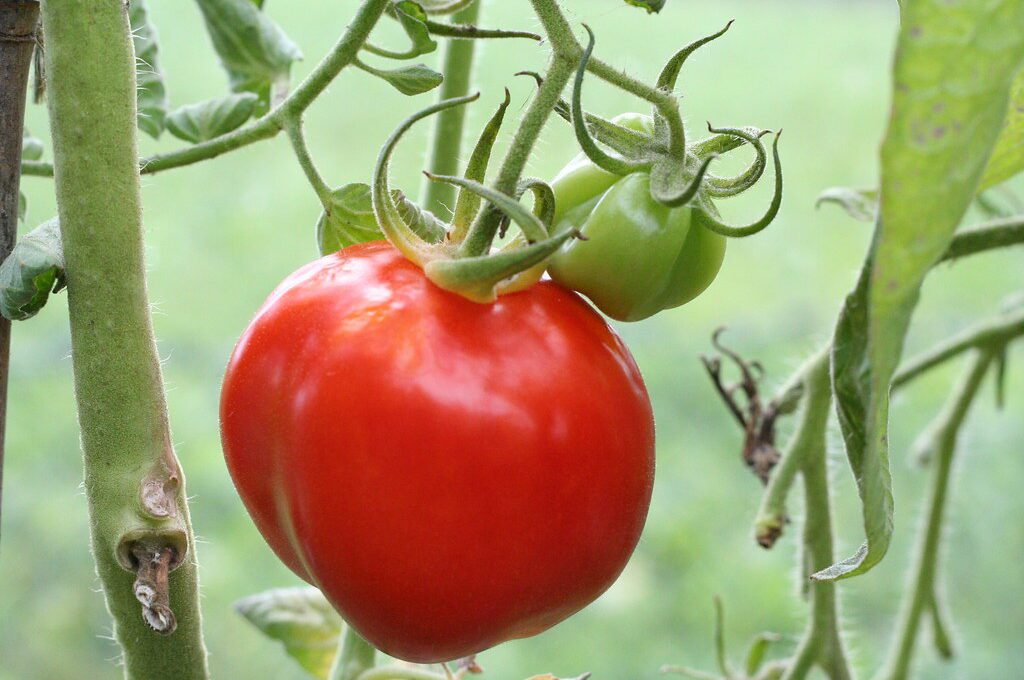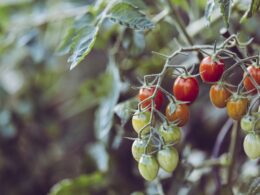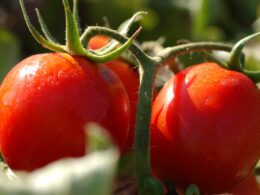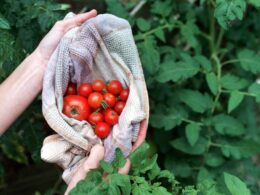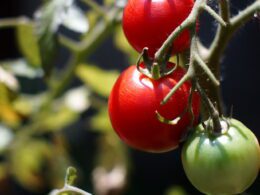You love your morning cup of coffee, but have you ever wondered if your plants might enjoy it too? There’s actually some science behind the idea that coffee could be beneficial for your green friends. However, before you start pouring your leftover java into your potted fern, it’s important to understand the potential risks and benefits involved.
In this article, we’ll explore the reasons why sharing a cup of coffee with your plants might not be such a far-fetched idea after all. We’ll also discuss how to properly use coffee grounds and diluted coffee in plant care, as well as some alternatives that can help keep your plants healthy and happy.
So grab a cup of joe and let’s dive into the fascinating world of plant care!
The Science Behind Coffee and Plants
Can’t believe it, but there’s actual science behind giving your plants a caffeine boost! As a coffee lover, you might be tempted to share your morning pick-me-up with your green friends.
Surprisingly, used coffee grounds can provide some benefits for certain plants. The nitrogen content in the grounds helps improve soil fertility and promotes healthy plant growth. Plus, the slightly acidic nature of coffee is perfect for acid-loving plants like azaleas and blueberries.
Now, before you go dousing your plants in black gold, keep in mind that moderation is key. Too much caffeine can actually stunt plant growth and even harm them. To safely share your cup o’ joe with your leafy pals, save those used coffee grounds from the bottom of the pot and sprinkle them lightly around the base of your plants or mix them into the soil as a natural fertilizer.
With these precautions in mind, sharing a bit of coffee with certain types of plants can indeed provide them with some added benefits. Just remember not to overdo it and always monitor how they react to this caffeinated treat. In doing so, both you and your beloved houseplants can enjoy safe sips together while nurturing their growth!
Potential Benefits of Coffee for Plants
Imagine giving a little caffeine boost to those leafy friends, possibly providing them with valuable nutrients and improving their growth! Sharing your cup of coffee with your plants might sound bizarre, but it can actually have some benefits.
As we learned earlier, there is science behind the use of coffee for plants – so let’s dive into the potential perks that come from this unusual pairing.
-
Natural Fertilizer: Used coffee grounds are rich in nitrogen, phosphorus, and potassium – all essential nutrients for plant growth. By adding them to your soil or compost pile, you’re giving your plants a natural source of these crucial elements.
-
Improved Drainage: Mixing coffee grounds into your soil can help improve its structure and drainage. This means better oxygen circulation around the roots and less chance of over-watering.
-
Pest Repellent: Coffee grounds can act as a deterrent against certain pests like slugs, snails, ants, and even cats! Sprinkling used grounds around your garden or potted plants may help keep these critters at bay.
-
Acid-Loving Plants: Some plants thrive in acidic environments (like blueberries and azaleas), making used coffee grounds an excellent addition to their soil.
So go ahead – share that cup of joe with your green companions! Just remember to use moderation when applying used coffee grounds; too much acidity could harm some plants. And always do a bit of research on what types of plants will benefit most from this unique nutrient source.
With proper care and attention (and maybe just a splash of java), you’ll be well on your way to nurturing happy, healthy flora right alongside you as you enjoy that comforting morning ritual together!
Risks of Using Coffee on Plants
While there are undeniable benefits to using coffee on plants, it’s also important to be aware of potential risks and downsides associated with this practice. Overdoing it with coffee grounds or brewed coffee can lead to some problems that may hinder your plants’ growth and overall health. Knowing the possible negative effects will help you make an informed decision about whether or not sharing a cup of coffee with your plants is a good idea.
| Potential Risk | Reason for Concern |
|---|---|
| Acidic soil | Coffee can lower the pH level, harming acid-sensitive plants. |
| Excess caffeine | High levels of caffeine can stunt plant growth and affect root development. |
| Mold | Wet coffee grounds create a breeding ground for mold and fungus. |
| Attracting pests | Pests like slugs, snails, and rodents might be drawn to decomposing coffee grounds. |
Now that you’re aware of these potential risks, it’s crucial to find the right balance when using coffee on your plants. Using small amounts as part of a balanced compost mix or diluting brewed coffee before application can help minimize any issues while still providing beneficial nutrients to your plants. Remember, moderation is key in maintaining a healthy environment for both you and your green friends – so go ahead and share that cup of joe responsibly!
How to Properly Use Coffee Grounds and Diluted Coffee in Plant Care
Don’t worry, with the right approach and balance, you can still enjoy the benefits of using coffee grounds and diluted coffee in your plant care routine!
First, make sure to only use used coffee grounds or properly diluted brewed coffee. This is because fresh coffee grounds are too acidic and may harm your plants. To dilute brewed coffee for your plants, mix one part brewed coffee with three parts water.
When using used coffee grounds, spread them on top of the soil around your plants as a thin layer of mulch. This will help with moisture retention, provide trace nutrients to the soil, and even deter some pests. However, don’t overdo it – too much can lead to mold growth or create an impenetrable layer that prevents water from reaching plant roots.
As for watering your plants with diluted coffee, only do so once every week or two at most. Overwatering with this mixture can cause root rot or other issues due to excessive acidity.
Remember that moderation is key when incorporating these practices into your gardening routine – give your plants just enough of a caffeine boost without causing any harm!
Alternatives to Coffee for Plant Care
Looking for other ways to perk up your plants besides coffee? Let’s explore some alternatives that can benefit their growth and health!
There are several options available that can provide the nutrients and care your plants need without relying on coffee grounds or diluted coffee. These alternatives can help ensure the safety of your plants, as well as promote a healthy environment for them to thrive in.
-
Compost: Creating a compost pile or bin with kitchen scraps, yard waste, and other organic materials is an excellent way to recycle nutrients back into the soil. It provides a rich source of essential nutrients for plant growth.
-
Epsom Salt: A solution of Epsom salt and water is known to improve plant health by providing magnesium, which aids in photosynthesis and strengthens cell walls.
-
Eggshells: Crushed eggshells are a great source of calcium, which helps build strong cell walls and promotes overall plant strength.
-
Fish Tank Water: If you have an aquarium at home, using the nutrient-rich water from fish tanks when you change it can provide essential minerals and nutrients for your plants.
Instead of reaching for that cup of coffee to share with your plants, try one or more of these alternatives to promote their well-being while keeping them safe from potential harm due to overuse or misuse of caffeine-containing substances like coffee grounds or diluted coffee. By choosing suitable approaches tailored to your plants’ needs, you’ll be giving them the best chance at thriving in a nourishing environment without any risks associated with caffeine exposure!
Conclusion
So, should you share a cup of coffee with your plants? The answer is yes, but in moderation.
Using coffee grounds and diluted coffee can provide some benefits to your green friends. Just be mindful of the risks and alternatives.
Keep an eye on your plants’ health and adjust accordingly. Happy gardening!





